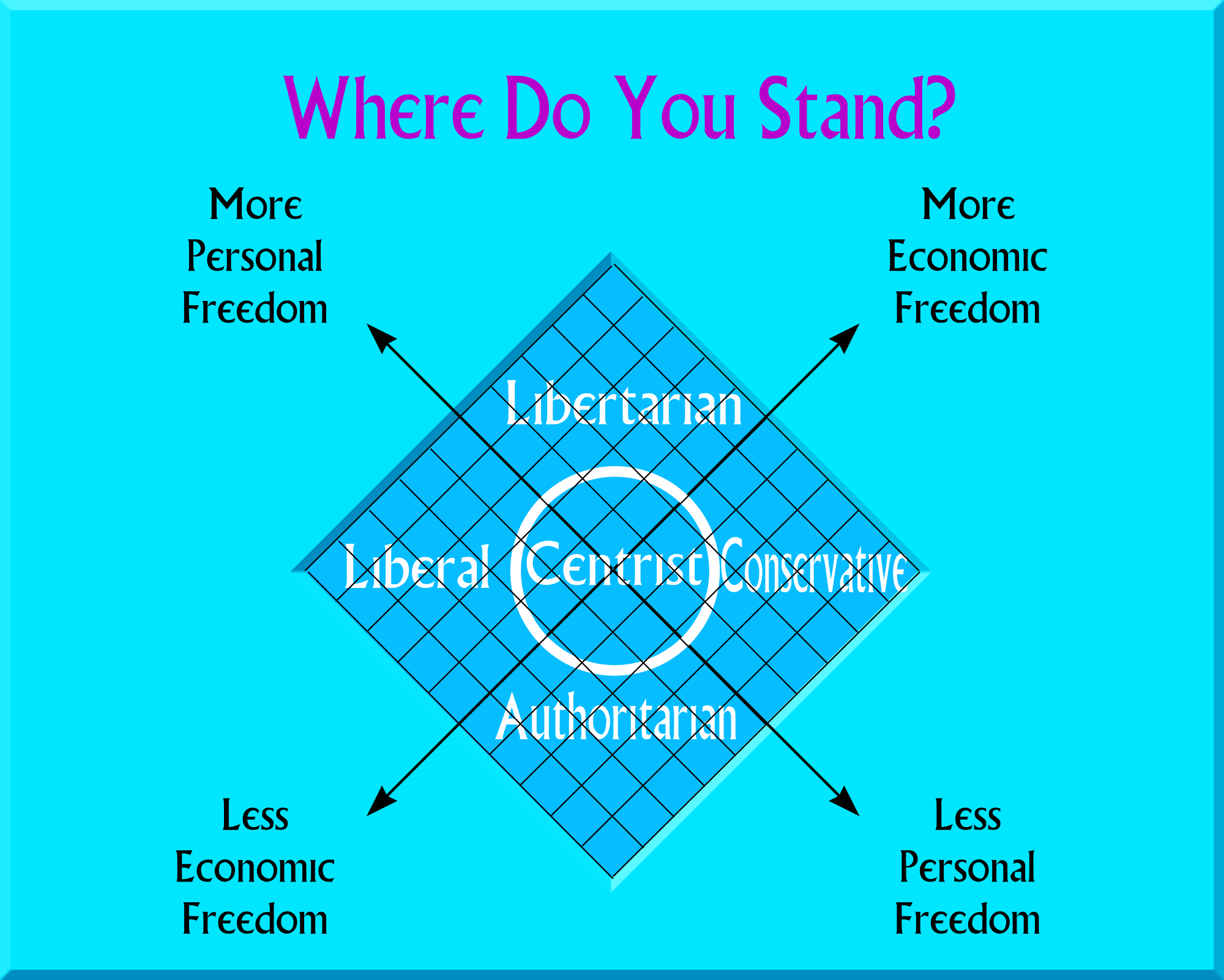War is the health of the State — except where it is the death of the State. That exception thingy is why I have avoided the foreign intervention issue in prior editions of the Quiz. Taking out Hitler was good for liberty — but the process required quite a bit of death and taxes.
For this go around, my yardstick is amount of government vs. initiation of force. Even there, foreign policy is a bit ambiguous. Fighting WWII did require more government at home — and how! But if the Axis powers decided to absorb the U.S. after taking care of Eurasia, the total amount of government would have been even bigger even at [U.S.] home in the long run.
Nonetheless, given how much Ron Paul invested in the foreign policy issue, and how the War on Terror threatens to drag on indefinitely, the lack of a military intervention question is perhaps unacceptable.
For Version 7, perhaps a foreign intervention question focused just on the Middle East is appropriate, given the War on Terror. It can serve as a proxy for attitudes on intervention in general. In fact, George W. Bush gave reason to broaden the question given his Axis of Evil speech.
So, how is this:
WAR ON TERROR
Ever since 9/11 the United States has been in a state of open ended war against militant Islamic groups and countries which host them. This has been very expensive, and innocent people have been killed in the cross fire. Then again, we haven’t suffered a major terrorist attack since we began the War on Terror. If we don’t get the terrorists over there, we might need a full on police state at home to protect the millions of soft targets — or so many claim. But would we be under attack by militant Islamists if we weren’t meddling in the Middle East in the first place?
What is the appropriate military response to terrorism in the 21st Century?
- The U.S. response was appropriate more or less.
- We should have pulled out of Afghanistan and Iraq much sooner. Take out the Taliban and Saddam Hussein, yes. Nation build, no.
- The second Iraq war was a mistake.
- The first Iraq war was a mistake, as was Desert Shield. Hussein was Saudi Arabia and Iran’s problem.
- We shouldn’t meddle in the Middle East at all. Get out of the Persian Gulf. Let the Israelis defend themselves. “They hate us because we are over there.”
- We should focus on energy independence so we can distance ourselves from the Middle East. Levy a large tariff on OPEC oil and/or spend some billions on a serious energy policy.
- We should be more aggressive. Bomb Iran before they get nuclear weapons.
- We should have invaded Saudi Arabia after 9/11. Most of the terrorists were Saudi citizens, and Saudi Arabia sponsored the Taliban.
- We should take out North Korea to finish off the Axis of Evil.
- Invade Cuba and establish democracy there.
- Any to of the above aggressive actions (Iran, Saudi Arabia, North Korea, Cuba.)
- Any three of the above.
- All of the above.
My feedback from the right is that the above was a leading question. So here is a second try:
WAR ON TERROR
After the World Trade Center attack on 9/11, the United States embarked on a campaign of introducing democracy by force of arms and taking out terrorist cells abroad. It seems to have worked. We have suffered no major terrorist attack at home since, and democracies are sprouting all across the Middle East. But the price has been enormous in terms of treasure and lives lost. Did we overreact? And in the longer run, have the recent wars inspired as many future terrorists as we have taken out? Opinions vary.
What is/was the appropriate military response to terrorism in the 21st Century?
- What we did. The U.S. response, including the wars in both Afghanistan and Iraq, was appropriate and sufficient.
- We need to do more. We should intervene in Syria.
- More: we need to stop Iran for getting nuclear weapons, by force of arms if need be.
- More: there is another country or countries that need military correction soon.
- Two of the above additional interventions
- All of the above additional interventions.
- Less. Taking out the Taliban and Saddam Hussein were worthwhile, but we shouldn’t have stayed for the extensive nation building afterwards.
- Less. Afghanistan yes. The second Iraq war no.
- Much less. Even the first Iraq war was a mistake, as was Desert Shield. Saddam was Saudi Arabia and Iran’s problem.
- Much less. They hate us not because we are free, but because we are over there. We should focus on energy independence so we can end our involvement in the Persian Gulf. Levy a large tariff on OPEC oil and/or spend some billions on a serious energy policy.
- Much less. Let’s get completely out the Middle East now, without waiting for energy independence. And let Israel defend itself.

The Cuba answer comes out of nowhere, but I think I see what you’re trying to accomplish. Personally, I like the “pull out much sooner” answer best, sort of a “let’s clean up our cold war mess, and then get out” sort of thing.
I think this question is fine as is. While I think it may be a little mid-east centric, it’s basically the one area that is the center of attention in terms of foreign affairs, so that’s probably a good thing.
On the whole I’m trying to deal with concrete cases vs. abstractions this time around. Better to expose “revealed preference.” That’s why I don’t have an overall level of spending question this time.
Have you considered adding a direct choice regarding north Korea. They might as well be named a terrorist state